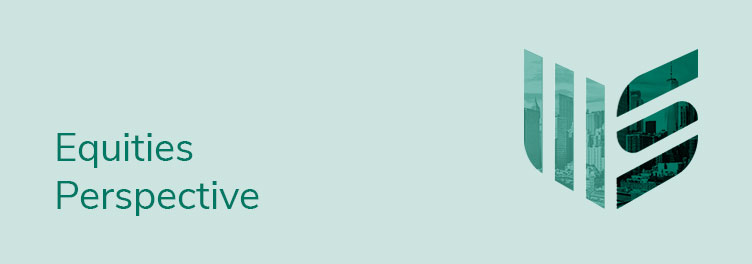
DJIA: 33,414
Sure it’s the end of the world … could it be discounted? So it might seem to look at the market’s resilience. It’s not just the Middle East, last week’s numbers weren’t exactly market friendly. Yet for the most part things have held together pretty well – ignoring bad news being a good sign, if you believe it’s the market that makes the news. More quantifiable, the A/Ds have been positive 6 of the last 10 days. And while a bit of a backhanded compliment, there have been no what we call bad up-days. When the market goes down, bad A/Ds are to be expected, it’s those up-days with poor A/Ds that cause problems. Meanwhile, since the end of July the market has been in what the textbook would call a correction in an uptrend – a correction that has held the 200-day in terms of the S&P. What’s needed is a little upside momentum, a push through the 50-day around 4400.
The market may make the news, but the news these days has made for some considerable volatility, and then there’s the bond market, pretty much responsible to the minute for Tuesday’s good start and poor finish. If war and rates were not bothersome enough, then there’s China. Markets are always rife with cross currents of sorts, this one perhaps more so than most. We continue to think Staples are worth a look, oversold doesn’t mean over, but in this case they are historically so. Aerospace/Defense shares have their obvious appeal, as well as the appeal of good charts. Oil also seems a hedge of sorts.
Is Gold the new Bitcoin? And if so, is that a good thing? Both have seemed a good hedge only against making money. To be fair Gold has regained a pulse of sorts, but it’s hard not to be skeptical. We like a market that can ignore the chance to go down, we don’t like that Gold has ignored many chances to go up. However, it has shown a better than typical response to recent events. And to look at the usual suspects like the ETFs, GDX (30) and GDXJ (35), they are at least back above their 50-day averages. Bitcoin has been worse than Gold, though it did come to life on the false rumor that a cash ETF was about to be approved. There is already an ETF based on futures, and with the backing of Blackrock, a former Bitcoin denier, approval eventually seems likely. A clear beneficiary here is Grayscale (22).
We place a good deal of emphasis on Advance-Decline numbers, that is, what the average stock is doing. It’s always relative, of course, relative to what the stock averages are doing. Even daily it’s not good to see the two out of sync. Down days in the Averages the A/Ds likely will be down as well. Up-days in the Averages the A/Ds should be positive as well. When they’re not, when there’s what we call a bad up-day it leads to problems, often sooner than later. While we argue down days and negative A/Ds happen, there is a caveat. And it comes about when as this last week you see a couple of outsized negative A/D numbers relative to the Averages. This leads to divergences that are difficult to correct, and divergences eventually lead to weakness in the Averages. The timing here is unknown, but with fewer stocks participating, it speaks to a difficult market in any event.
Biden warns don’t mess with Israel! What about messing with Taiwan? Who was thinking about Gaza a week ago? We haven’t even mentioned Iran – clearly there’s a lot going on. Contrary to the norm, this sort of news can make the market – the unknown, unknowns. Little wonder the S&P finds itself backing off of the 50-day and teetering in its recent range. Then, too, this seems as much about the other war, the bond market war. The 10-year Treasury Yield is now back above its level on the eve of the Hamas attacks. What happened to the flight to quality? The prevailing fear of many, recently articulated by Paul Tudor Jones, is that investors will grow leery of US deficits, and demand higher yields. That’s called a buyers’ strike, and still higher yields.
Frank D. Gretz
Click to Download
PLEASE NOTE: Unless otherwise stated, the firm and any affiliated person or entity 1) either does not own any, or owns less than 1%, of the outstanding shares of any public company mentioned, 2) does not receive, and has not within the past 12 months received, investment banking compensation or other compensation from any public company mentioned, and 3) does not expect within the next three months to receive investment banking compensation or other compensation from any public company mentioned. The firm does not currently make markets in any public securities.